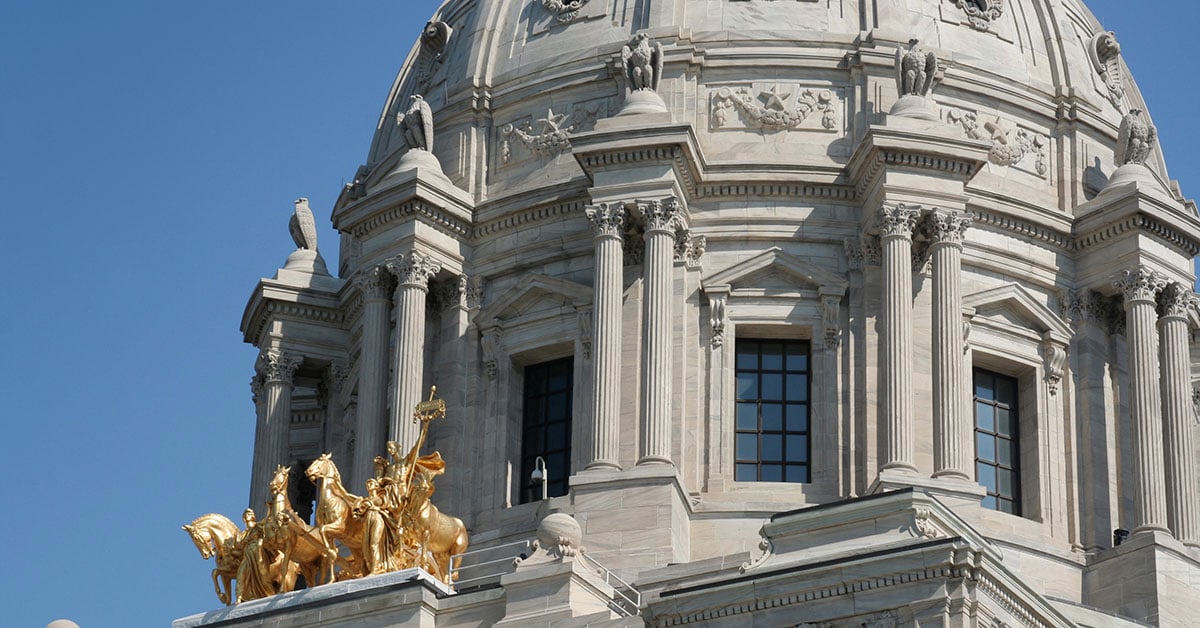Redpath Welcomes Mike Dunkle as a Transaction Advisory Services Partner
ST. PAUL, MN – February 3, 2026 – Redpath and Company is pleased to welcome Mike Dunkle as a Partner in the firm’s Transaction Advisory practice....
6 min read
 Redpath and Company
:
June 13, 2023
Redpath and Company
:
June 13, 2023

June 12, 2023 - On May 24, 2023, Minnesota Governor Tim Walz signed a wide-reaching omnibus tax bill into law. The bill brings about some significant changes that will impact Minnesotans in the areas of personal, business, and state and local taxation.
Personal Taxes
The most significant changes from an individual tax standpoint focus on rebates, credits, and refunds. For high income earners, there are phaseouts for using standard and itemized deductions on their tax returns.
At this time, the Minnesota Department of Revenue is asking taxpayers to refrain from amending previously filed Minnesota income tax returns to account for the changes. The Department is reviewing the tax law changes and will share guidance and tax forms for affected tax years when they are available.
Direct Tax Rebate Payments
The tax bill provides for a one-time income tax rebate of up to $1,300 to eligible Minnesotans. Qualification and payments are based on 2021 Minnesota income tax returns. Revenue will send rebate payments this fall to those that qualify so if your address or banking information has changed from what was reported on your 2021 return, the information will need to be updated later this summer through a secure online portal provided by the Department of Revenue. For those that opted out of direct deposit or did not provide banking information with their 2021 return, paper checks will be mailed. The rebate amounts are calculated as follows:
Child Care Tax Credit and Working Family Tax Credit
For tax years beginning after December 31, 2022, a refundable childcare tax credit and a working family credit will be available to taxpayers. The size of each credit depends on household income. The full Minnesota Child Care Tax Credit is worth $1,750 per child and begins to phase out for married filers earning more than $35,000 per year and $29,500 for all other filers. The bill also expands the Child Care Tax Credit to be available to single filers with a newborn child that do not have dependent care expenses by creating the “newborn credit” which allows qualified filers to claim the childcare credit using the maximum amount of expenses allowed for one dependent, whether or not they actually incurred dependent care expenses. The Working Family Credit is increased for taxpayers with 1, 2, or 3 or more children and is phased out jointly with the child tax credit.
Social Security Income Tax Exemptions
Under the new law, couples with annual income of up to $100,000 and single filers earning up to $78,000 would be exempt from state tax on social security benefits (the exemption phases out at $140,000). This is effective for tax years beginning after December 31, 2022.
New Net Investment Income Tax
An additional 1% tax will be assessed to individuals, estates, and trusts on their net investment income exceeding $1,000,000 effective for tax years beginning after December 31, 2023.
Renter’s Property Tax Credit Changes
Effective for tax years beginning after December 31, 2023, the renter’s property tax credit will be treated as a refundable income tax credit that will be claimed on the individuals Minnesota income tax return rather than filing a separate form (M1PR) and receiving a refund payment in August or September. In addition, the method of calculating income for determination of the credit amount will be adjusted gross income (AGI) rather than the previously used “household income”. For refunds based on rent paid in 2022, the bill also provides for a one-time increase of 20.572% of the amount of the renters’ credit due.
Homestead Property Tax Credit and Special Property Tax Refund
As with the one-time increase in the renters’ credit, a one-time increase in the amount of homestead credit refund in the amount of 20.572% was approved for refunds based on property taxes payable in 2023. In addition, the ‘special refund’ which applies to homeowners whose property taxes increased by more than 12% from the previous year will now apply to homeowners with property tax increases larger than 6% and the maximum refund is increased to $2,500 from $1,000.
Standard and Itemized Deduction Changes
The phaseouts for standard and itemized deductions for high income earners (those with adjusted gross income in excess of $220,650) are amended beginning with tax year 2023. In addition, the Minnesota itemized or standard deduction will be reduced by 80% for those with AGI over $1 million.
Student Loan Forgiveness
The tax bill permanently adopts the federal exclusion from taxable income as provided for under the American Rescue Plan Act for student loan debt that has been discharged.
Business Taxes
For Minnesota businesses, the tax landscape continues to evolve. Some of the major changes will affect pass-through entities, deductions for dividends received, and conformity to federal tax codes for net operating losses and global intangible low tax income (GILTI).
Pass-Through Entity Tax (PTET)
The PTET allows partnerships and S corporations to file and deduct state taxes for qualifying owners to get around the $10,000 state and local tax limitation. Qualifying owners includes individual or estate partners in a partnership; or individual, estate, or trust shareholders of an S corporation.
These PTET changes are effective for taxable years beginning after December 31, 2022. Minnesota made several enhancements to the PTET including:
Net operating losses (NOLs)
Effective for taxable years beginning after December 31, 2022, the amount of the Minnesota net operating loss deduction cannot exceed 70% (previously 80%) of taxable net income in a single taxable year.
Global intangible low-taxed income (GILTI)
Effective for tax years beginning after December 31, 2022, Minnesota tax code now conforms to the federal treatment of GILTI, except Minnesota does not allow an IRC Section 250 deduction. GILTI is classified as dividend income for Minnesota purposes and is subject to the revised Minnesota DRD provisions.
Dividends received deduction (DRD)
For tax years beginning after December 31, 2022, Minnesota reduced the dividend received deduction to 50% or 40% (previously 80% and 70%) for dividends received by one corporation from another corporation. Dividends received from a corporation at least 20% owned qualify for the 50% DRD. Those owning less than 20% may claim a 40% DRD.
State and Local Taxes
With the recent trend of individual states charging a so-called “fee” for delivery of product into their state, Minnesota has enacted its own “retail delivery fee” with passage of the 2023 Minnesota transportation finance and policy bill. Other updates and new provisions under the omnibus tax bill include tax increases for the seven-county metro area, vehicle excise tax increases, and new tax exemptions.
Retail Delivery Fee
Effective July 1, 2024, a fee of 50 cent retail delivery fee will be imposed on retail deliveries into Minnesota for all transactions greater than $100.
The fee can be separately stated and collected from the purchase, or the retailer can choose to pay it. If the fee is separately stated, it needs to be separate from any delivery fee and is not subject to sales tax. The fee must be stated on the invoice as “road improvement and food delivery fee.”
The following retail deliveries are exempt from the Retail Delivery Fee:
Small Seller Exemption
Sales and Use Tax
Effective October 1, 2023, the seven-county metro area will see 1% sales and use tax rate increase. Counties included are Anoka, Carver, Dakota, Hennepin, Ramsey, Scott, and Washington. The increase includes:
Other Sales Tax Changes

ST. PAUL, MN – February 3, 2026 – Redpath and Company is pleased to welcome Mike Dunkle as a Partner in the firm’s Transaction Advisory practice....

The Redpath and Company BottomLine Newsletter ishere!

As 2025 drew to a close, the Governmental Accounting Standards Board (GASB) issued Statement No. 105, Subsequent Events. While the requirement to...